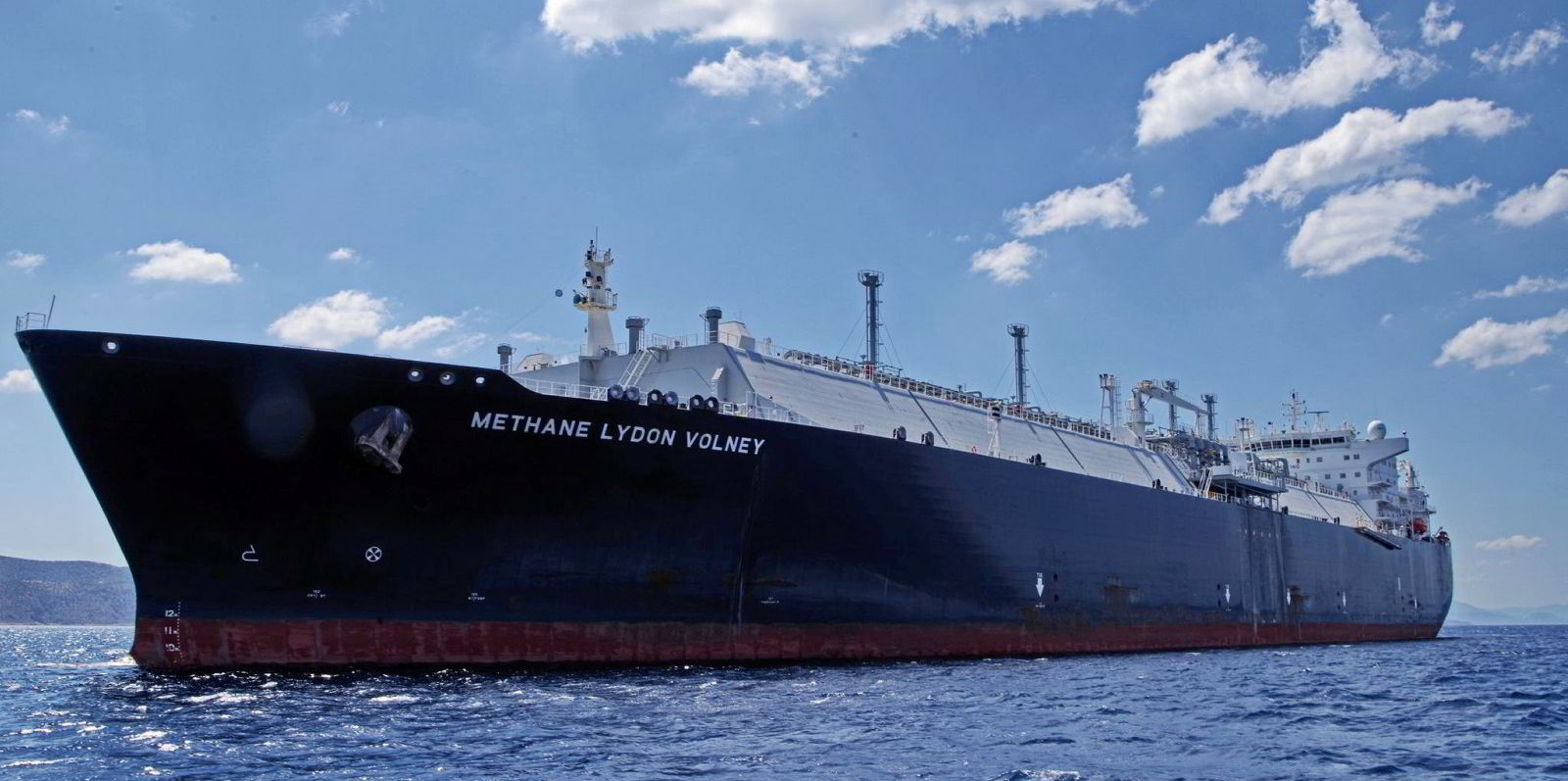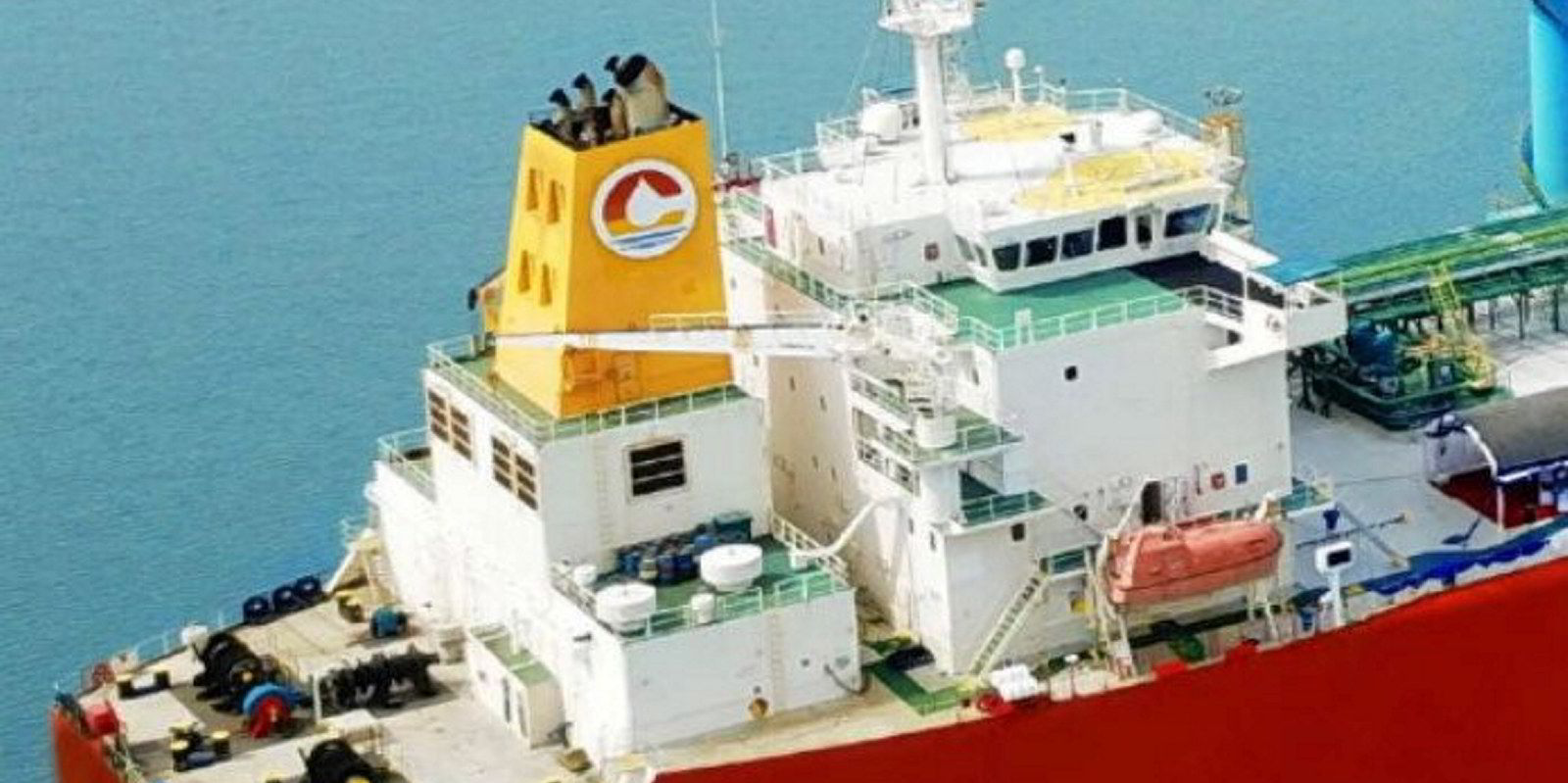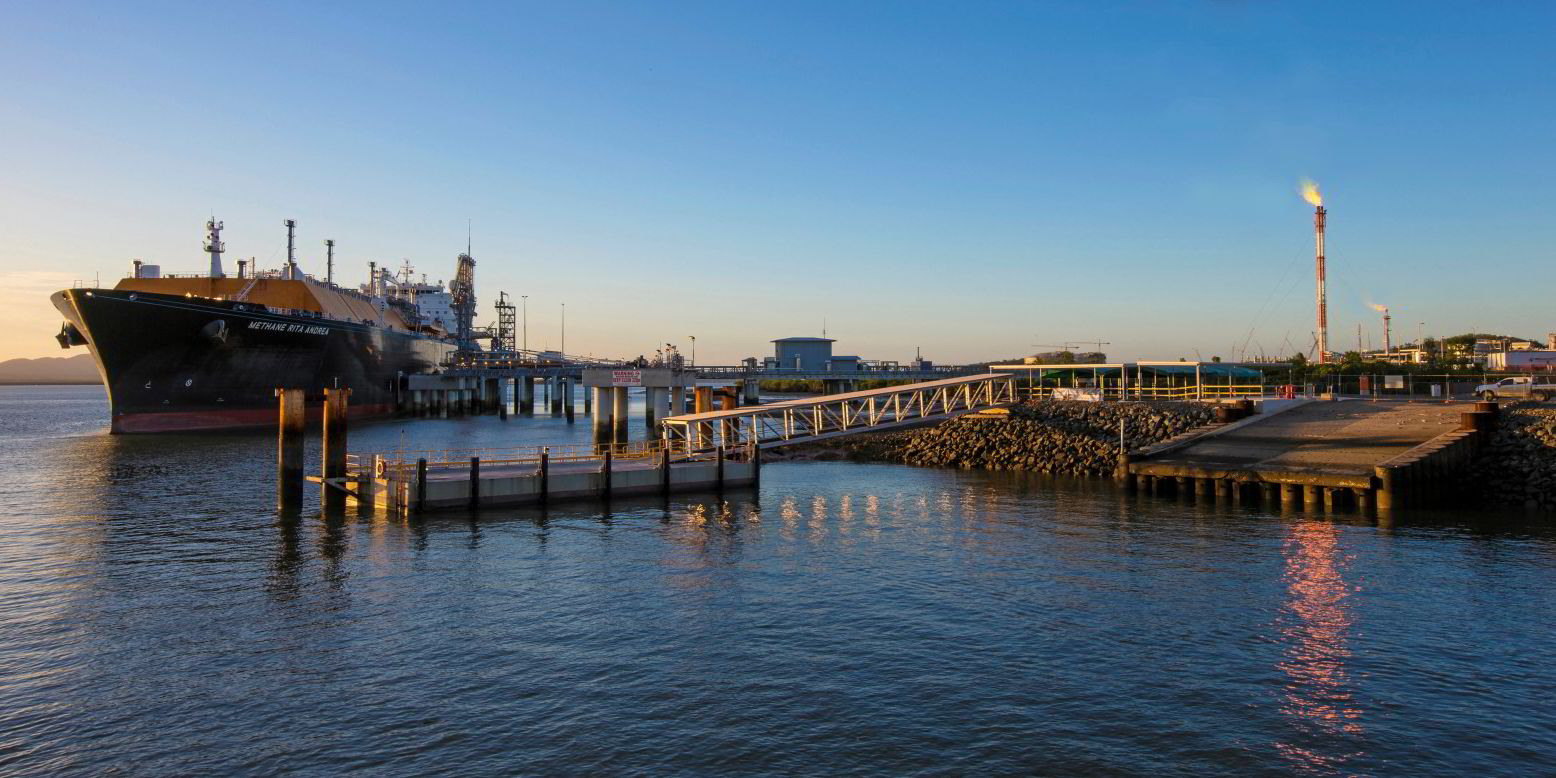A GasLog-owned steam turbine LNG carrier has been installed as a floating storage unit to boost capacity at Greece’s land-based Revithoussa LNG import terminal.
Hellenic Gas Transmission System Operator (DESFA), the facility’s operator, said the addition of the 145,000-cbm Methane Lydon Volney (built 2006) will increase total storage capacity at the terminal to 360,000 cbm.
The LNG carrier — one of two steamships in GasLog Ltd’s fleet — is believed to be chartered to DESFA for 12 months.
It is moored close to the existing terminal.
Touring the vessel, DESFA chief executive Maria Galli said: “During this critical time, DESFA was on the frontline of current developments, implementing a series of investments to strengthen its infrastructures and further diversify Greece’s sources of supply, and significantly reduce the country’s dependence on natural gas coming from Russia.”
Galli thanked Greek government ministers for playing what she described as “such a catalytic role to bring the FSU in record time into Greek waters, responding to the energy crisis and enhancing the security of LNG supply in our country”.
Peter Livanos-controlled GasLog, which became a private company again in June 2021 in a deal with BlackRock’s Global Energy & Power Infrastructure Fund, and US-listed GasLog Partners have been working hard to find new employment for the LNG steamships in their fleets.
In its second-quarter results statement, GasLog Partners said it has sold on subjects to a third party the 145,000-cbm steamship Methane Shirley Elisabeth (built 2007) for approximately $54m.
TradeWinds reported this week that the buyer of the vessel is being named by brokers as Silo Maritime of Indonesia.
GasLog Partners, which controls a fleet of 15 LNG carriers including five steamships, also said in its results call that it is pursuing an agreement for the sale and leaseback of another steam vessel within the next 12 months.
The focus on LNG steamships is intensifying with the advent of the Energy Efficiency Existing Ship Index (EEXI) and Carbon Intensity Indicator (CII) regulations coming into force in January 2023, which are expected to limit the trading ability of older less-efficient vessels.






